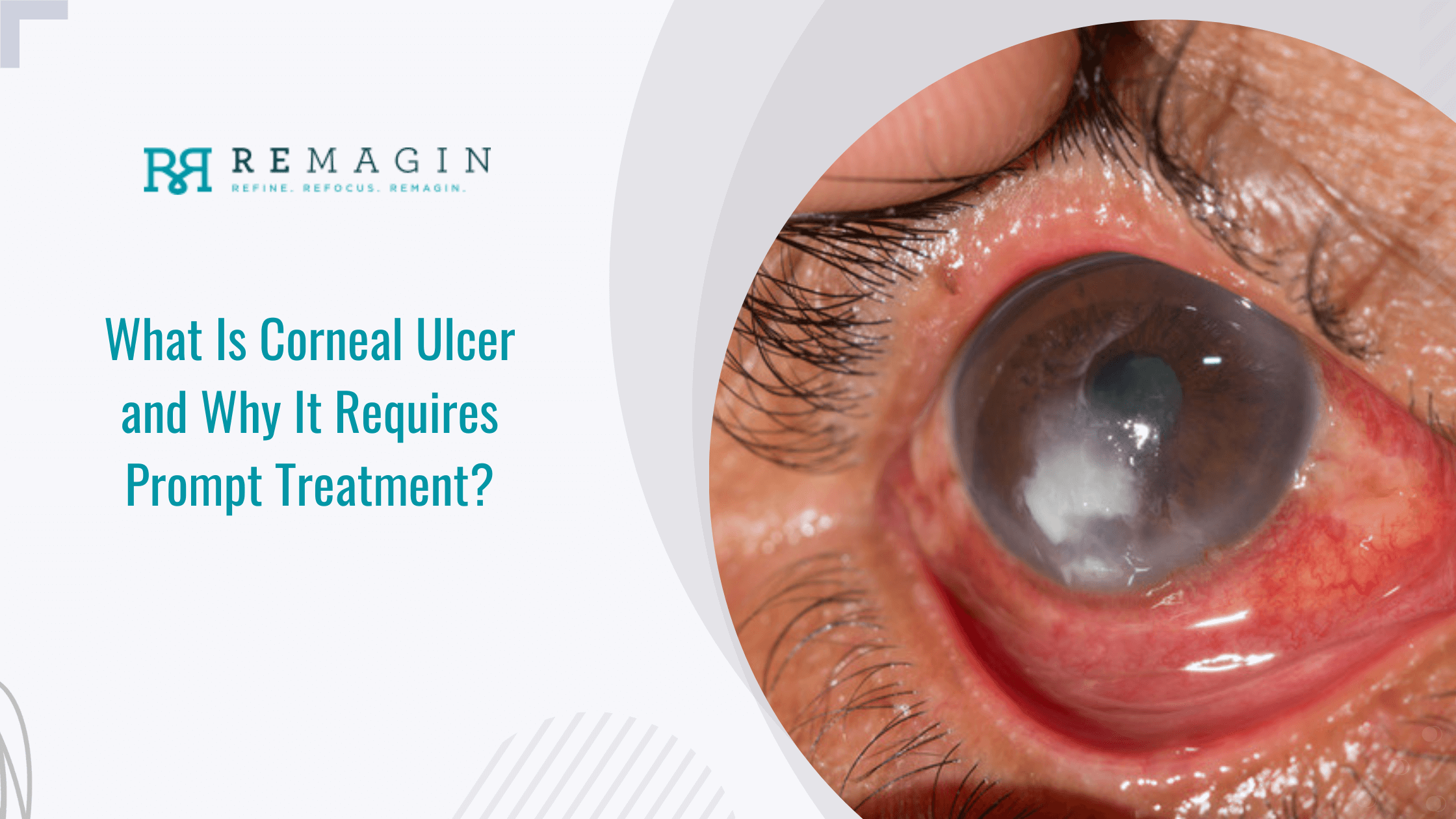



A corneal ulcer, also known as keratitis, is when an open sore forms on the outer layer of the cornea (a transparent layer of tissue at the front of the eye). The cornea protects the eye structures and allows light to enter the eyes with minimum optical degradation and scattering. If the cornea is infected or injured, the resulting redness or scars will impact your vision by distorting or blocking the light. Approximately, 30,000 to 75,000 people in the US experience corneal ulcers every year and over 12% of corneal transplants are performed to correct them.
Getting medical attention as soon as you develop corneal ulcers can help minimize the risk of complications, including vision loss, glaucoma, cataracts, etc.
Infections are the major cause of corneal ulcers, including:
Bacteria such as staphylococcus aureus, pseudomonas aeruginosa, and coagulase-negative staphylococcus can cause a corneal ulcer. Bacterial corneal ulcers are common in people who wear improperly cleaned contact lenses or wear them while sleeping.
Viruses that can cause corneal ulcers include shingles (herpes zoster) and cold sores (herpes simplex).
Fusarium, scedosporium apiospermum, phaeohyphomycosis, aspergillus, and candida species can cause fungal corneal ulcers. An injury to the cornea involving a plant or vegetable material can usually trigger these infections.
Acanthamoeba is an amoeba found in the air, soil, and freshwater. When it enters your eye, it causes Acanthamoeba keratitis. This parasitic corneal ulcer is common in people who wear contact lenses cleaned with tap water instead of a disinfectant.
Also, a corneal ulcer can be caused by:
Factors that may increase your risk of developing corneal ulcer are:
A corneal ulcer can cause:
Some initial symptoms to look out for include:
Your ophthalmologist will examine your eye to check for white or gray spots, swelling, redness, etc. The following procedures will be recommended if they suspect you have a corneal ulcer:
Fluorescein Eye Stain: This test involves applying an orange dye to your eye with a thin blotting paper. The ophthalmologist will shine a special violet light onto your eye to look for any corneal damage (which, if there is any, will be highlighted by the dye in green color).
Biopsy: If you have corneal damage, your doctor will take a sample of infected or scar tissue to determine its cause, whether fungi, bacteria, or virus.
Depending on the causes and severity of your corneal ulcer, your ophthalmologist may recommend any of the following treatment options:
Prescription Medications
When you are in treatment, you should avoid:
A corneal transplant is required if your cornea is severely damaged by keratitis. It involves surgically placing the new corneal tissue (from the donor) in place of the existing damaged one.
You can minimize your risk of corneal ulcers by:
No matter whether your corneal ulcer is caused by an infection, injury, or underlying medical conditions, we cure it with our best-in-class treatment, coupled with personalized care and attention. We have experienced ophthalmologists and state-of-the-art facilities to accurately diagnose and treat keratitis with desired results. Contact us today at Remagin to save your vision.